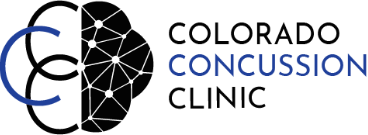You’ve just sustained a concussion, which is a mild traumatic brain injury. You might be wondering if you need a neurologist on your team, since neurologists diagnose and treat disorders of the brain. This is a great question, and one we get all the time.
In most cases, it is not necessary to see a neurologist following a concussion. A lot of our patients go to the ER to get checked out in the first few days, which is a very appropriate course of action. If there is no concern for brain bleed or need for surgery, they are typically told to follow-up with their primary care physician, or PCP. Ideally the PCP will give the patient some guidance for how to manage the symptoms during the acute phase and refer them to a concussion specialist. Getting care for your concussion early has been shown to decrease the risk of persistent post concussive syndrome.
What’s most important to your recovery, is having a medical professional on the case who has extensive knowledge of the typical and atypical courses of concussive injury, as well as the treatments available. Concussion management has dramatically evolved over the years, and it is important to understand that not all doctors, including neurologists, might be up to date. BEWARE of physicians who tell you to sit in a dark room for a week, or that there is nothing you can do but wait for your symptoms to go away. We now know that getting care within even as little as 36 hours post injury improves your chances of a shorter and faster recovery.
Our clinic was born out of the realization that high-quality comprehensive concussion care is hard to find. The two medical professionals on our team who provide case management are Michelle Reed, Nurse Practitioner, and Kathryn Reitz, Doctor of Osteopathy. These two providers have seen so many patients, spanning the acute concussion stage to several years post-concussion. Unlike most neurologists, who often treat a variety of neurological issues, they are seeing concussion cases all day - it’s their wheelhouse. They have a deep understanding of the symptomology of head injury, know that certain medications are more effective with this population of patients, and are well-versed in the most current evidence-based therapies and how these therapies interact to produce results. A majority of the people that come through our clinic never need to see a neurologist. They experience significant improvement from the care provided by our NP or DO, and the rehab therapists. It’s a good thing, too, because it can take months to get an appointment with a neurologist!
All that said, a good health professional understands when it’s time to refer to a neurologist or other specialist. Is there concern for seizures? Are the migraines not improving after several interventions have been tried? Is the patient experiencing fainting spells? Did a Brain MRI show something concerning? Like investigators, they will always ask questions, but it is very important to share all of your symptoms with your providers so that they can be sure to point you in the right direction and get you the help you need.

